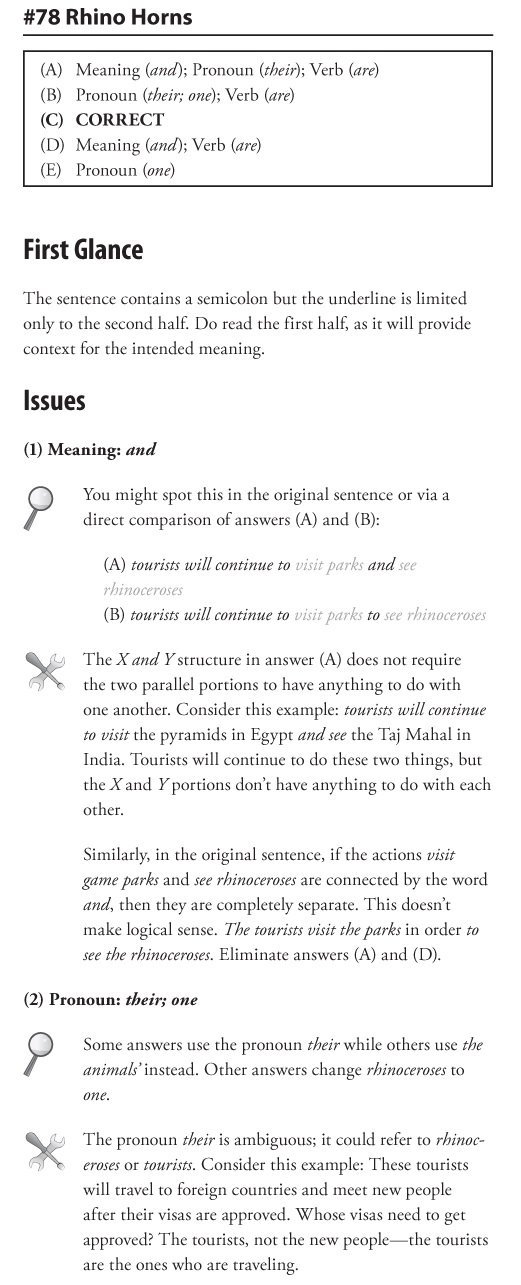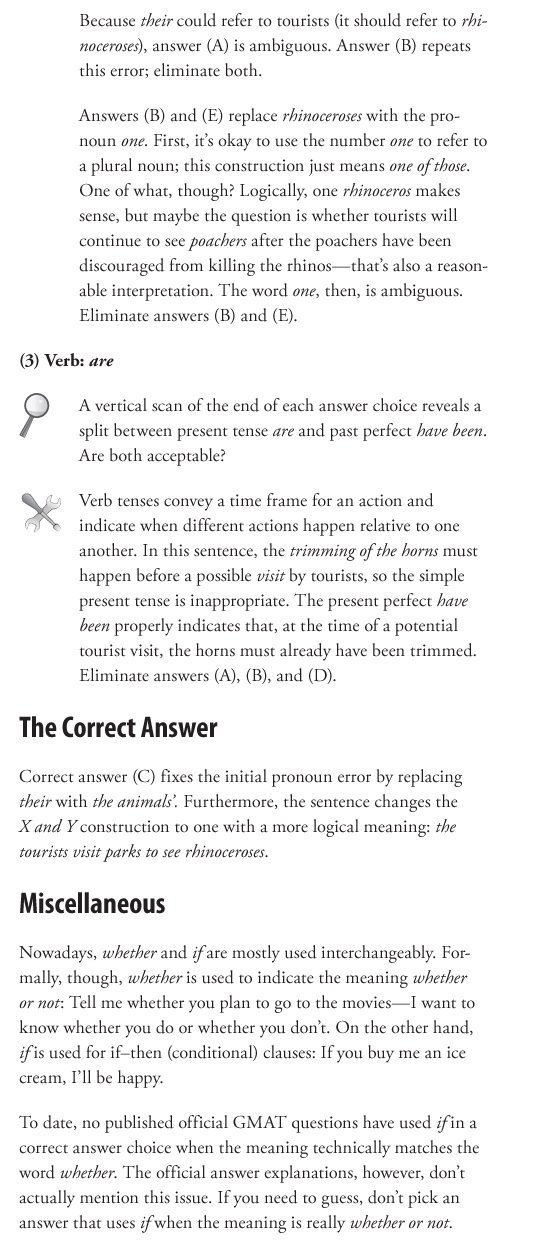Events & Promotions
|
|

GMAT Club Daily Prep
Thank you for using the timer - this advanced tool can estimate your performance and suggest more practice questions. We have subscribed you to Daily Prep Questions via email.
Customized
for You
Track
Your Progress
Practice
Pays
Not interested in getting valuable practice questions and articles delivered to your email? No problem, unsubscribe here.
- Nov 19
12:30 PM EST
-01:30 PM EST
Learn how Keshav, a Chartered Accountant, scored an impressive 705 on GMAT in just 30 days with GMATWhiz's expert guidance. In this video, he shares preparation tips and strategies that worked for him, including the mock, time management, and more - Nov 18
11:00 AM PST
-12:00 PM PST
Join us in a live GMAT practice session and solve 30 challenging GMAT questions with other test takers in timed conditions, covering GMAT Quant, Data Sufficiency, Data Insights, Reading Comprehension, and Critical Reasoning questions. - Nov 20
01:30 PM EST
-02:30 PM IST
Learn how Kamakshi achieved a GMAT 675 with an impressive 96th %ile in Data Insights. Discover the unique methods and exam strategies that helped her excel in DI along with other sections for a balanced and high score. - Nov 22
11:00 AM IST
-01:00 PM IST
Do RC/MSR passages scare you? e-GMAT is conducting a masterclass to help you learn – Learn effective reading strategies Tackle difficult RC & MSR with confidence Excel in timed test environment - Nov 23
11:00 AM IST
-01:00 PM IST
Attend this free GMAT Algebra Webinar and learn how to master the most challenging Inequalities and Absolute Value problems with ease. - Nov 24
07:00 PM PST
-08:00 PM PST
Full-length FE mock with insightful analytics, weakness diagnosis, and video explanations! - Nov 25
10:00 AM EST
-11:00 AM EST
Prefer video-based learning? The Target Test Prep OnDemand course is a one-of-a-kind video masterclass featuring 400 hours of lecture-style teaching by Scott Woodbury-Stewart, founder of Target Test Prep and one of the most accomplished GMAT instructors.
C
Be sure to select an answer first to save it in the Error Log before revealing the correct answer (OA)!
Difficulty:
 35%
(medium)
35%
(medium)
Question Stats:
68% (01:18) correct 32%
(01:29)
wrong
32%
(01:29)
wrong  based on 10225
sessions
based on 10225
sessions
History
Date
Time
Result
Not Attempted Yet
A proposal has been made to trim the horns from rhinoceroses to discourage poachers; the question is whether tourists will continue to visit game parks and see rhinoceroses after their horns are trimmed.
(A) whether tourists will continue to visit game parks and see rhinoceroses after their horns are
(B) whether tourists will continue to visit game parks to see one once their horns are
(C) whether tourists will continue to visit game parks to see rhinoceroses once the animals’ horns have been
(D) if tourists will continue to visit game parks and see rhinoceroses once the animals’ horns are
(E) if tourists will continue to visit game parks to see one after the animals’ horns have been

01.jpg [ 110.22 KiB | Viewed 81740 times ]

02.jpg [ 132.43 KiB | Viewed 81668 times ]
(A) whether tourists will continue to visit game parks and see rhinoceroses after their horns are
(B) whether tourists will continue to visit game parks to see one once their horns are
(C) whether tourists will continue to visit game parks to see rhinoceroses once the animals’ horns have been
(D) if tourists will continue to visit game parks and see rhinoceroses once the animals’ horns are
(E) if tourists will continue to visit game parks to see one after the animals’ horns have been
Show SpoilerOfficial Explanation
Attachment:
01.jpg [ 110.22 KiB | Viewed 81740 times ]
Attachment:
02.jpg [ 132.43 KiB | Viewed 81668 times ]
Kudos
Bookmarks
The difference between ‘have been trimmed’ and ‘are trimmed’ is that trimming is a one –time job and not a daily chore. An event that was done in the past and which or whose effect is still carried through the present will have to be expressed in present perfect, while daily chores will have to be verbed with just present tense. So 'have been trimmed' is the preferred expression
Kudos
Bookmarks
Quote:
(A) has a couple of subtle little problems. For starters, I don’t think the phrase “…will continue to visit game parks and see rhinoceroses…” is quite right in this case. Grammatically, it’s fine: “visit” and “see” are parallel verbs. Trouble is, that suggests that the two actions are somehow equally weighted, and not necessarily related: tourists visit game parks, and tourists see rhinos, but maybe not at the same time.
So the phrasing in (A) isn't WRONG, exactly, but it’s not ideal: the intent of the sentence is to question whether tourists will continue to visit game parks TO SEE rhinos. And we have that option in some of the other answer choices.
You could also argue that the pronoun “their” is potentially ambiguous. It could refer to the rhinos or the tourists or the poachers, and only the rhinos would make sense, since tourists and poachers rarely trim their own horns. And again, pronoun ambiguity isn’t an absolute rule (more on that in this video), but we’ll have better options in a moment.
If you wanted to be conservative, you could keep (A), but the problems in (A) will be fixed in another answer choice.
Quote:
(B) includes the phrase “visit game parks to see [a rhino]…”, and that makes more sense than the parallel structure we saw in (A).
Trouble is, now the pronouns are worse. You could argue that “one” is a little bit ambiguous because it’s so far from “rhinoceroses”, but I can live with that – I don’t think it’s unclear, even if it isn’t awesome. But the “their” is definitely an issue: the nearest plurals are “game parks” and “tourists”, and neither of those are likely to have their horns trimmed. “Their” logically needs to refer to “rhinoceroses”, but that word is a long way from the pronoun now. That’s not cool.
So (B) is out.
Quote:
(C) fixes all of the problems and imperfections of (A) and (B). We have “…continue to visit game parks to see rhinoceroses…”, and that’s better than the parallel version in (A). The pronoun has been completely removed, so now we have “once the animals’ horns have been trimmed” – and that’s clear as a bell.
Let’s keep (C).
Quote:
(D) has the same parallelism problem as (A): “visit game parks and see rhinos” makes less sense than “visit game parks TO see rhinos.” See the explanation for (A) for more on this issue.
The GMAT also tends to frown on the use of “if” in situations like these. The GMAT seems to think that “if” can only be used for “if/then” (conditional) statements, but NOT for situations like this sentence, when the intent is just to indicate that two different alternatives are possible (e.g., visiting vs. not visiting game parks). I think that’s a silly thing for the GMAT to test, but who cares what I think?
The shorter version: if you’re given a choice between “if” and “whether” on the GMAT, then you’ll almost certainly want to choose “whether.”
So (D) is out.
Quote:
The only major problem in (E) is the use of “if.” See (D) for more on that issue.
So (E) is gone, and we’re left with (C).

















